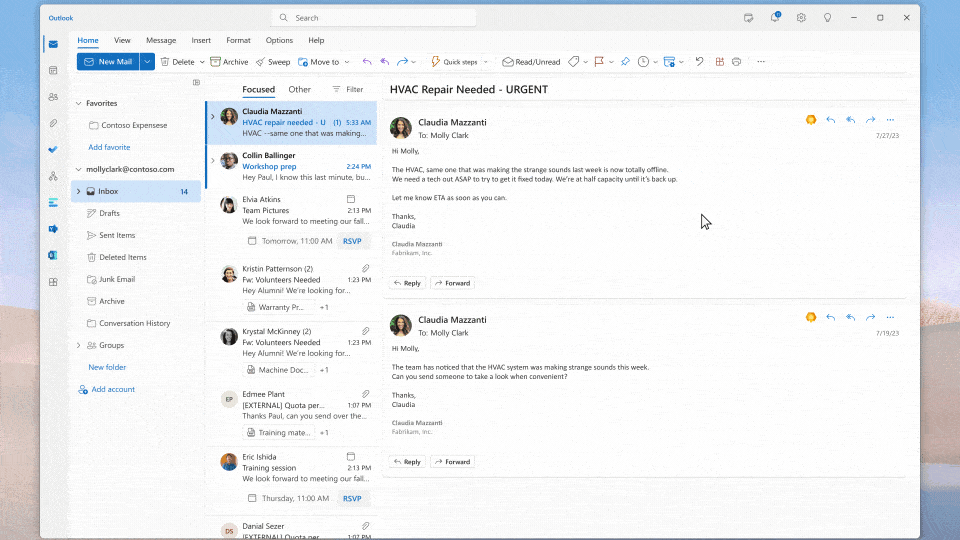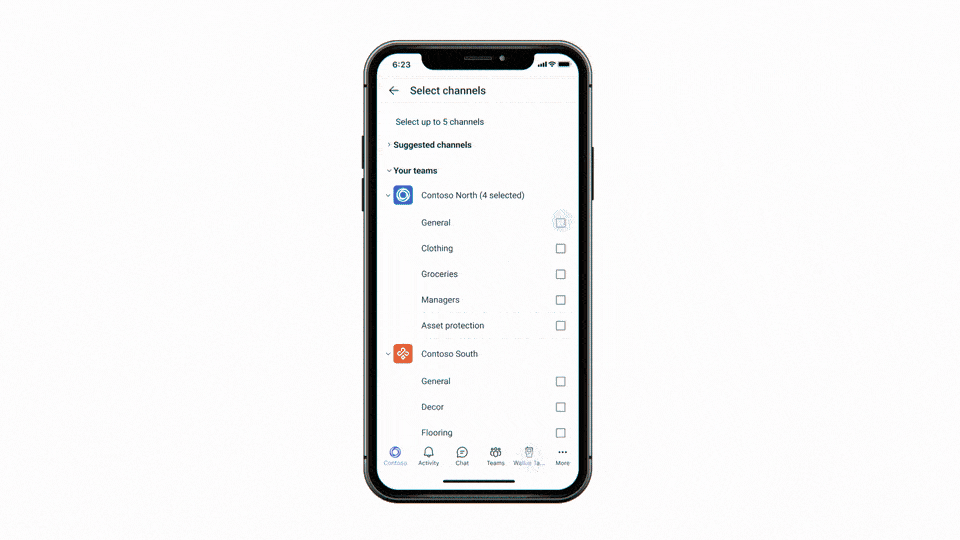Notizie per Categorie
Articoli Recenti
- Explore practical best practices to secure your data with Microsoft Purview 25 Aprile 2025
- New whitepaper outlines the taxonomy of failure modes in AI agents 24 Aprile 2025
- Understanding the threat landscape for Kubernetes and containerized assets 23 Aprile 2025
- [Launched] Generally Available: Instance Mix for Virtual Machine Scale Sets 22 Aprile 2025
- Microsoft’s AI vision shines at MWC 2025 in Barcelona 22 Aprile 2025
- [Launched] Generally Available: Announcing the Next generation Azure Data Box Devices 22 Aprile 2025
- [Launched] Generally Available: Cross-Region Data Transfer Capability in Azure Data Box Devices 21 Aprile 2025
- [Launched] Generally Available: Azure Ultra Disk Storage is now available in Spain Central 21 Aprile 2025
- [Launched] Generally Available: Azure Firewall resource specific log tables get Azure Monitor Basic plan support 21 Aprile 2025
- Hannover Messe 2025: Microsoft puts industrial AI to work 21 Aprile 2025
The future of work: How next-generation AI is empowering the frontline
Over the last few years, manufacturing and mobility companies around the world have faced challenges that continue to demand resilience and agility. From post-COVID-19 recovery to macro-economic uncertainties, these disruptors are impacting all levels—from leaders, to workers, to customers. We’ve seen strong and consistent double-digit growth in frontline workers’ monthly active users of Microsoft Teams across the manufacturing and mobility sectors this year. To look beyond these obstacles and drive their organizations forward, industry leaders must continue to make proactive investments that accelerate their digital transformation journeys to strengthen competitiveness and resilience.
One of the biggest opportunities here is around investing in and transforming the workforce. And for manufacturing and mobility companies, that means empowering one of the largest employee segments—frontline workers. With the advancements in digital tools and next-generation AI, Microsoft can transform the workplace in the same way that we are transforming other aspects of the business—by unleashing the power of intelligence. AI is a critical tool for unlocking a data-driven, connected, and collaborative workforce. By augmenting the capabilities of the frontline, AI can help free up workers to focus on higher-value tasks and activities.

Microsoft empowers the frontline workforce
We are committed to investing in innovative solutions with next-generation AI to help frontline workers thrive.
Drive frontline efficiency and execution with AI and digital tools
With continued challenges like burnout, retention issues, and labor shortages, organizations across the industry—from discrete manufacturers and original equipment manufacturers (OEMs) to global airlines and courier services—can find value in reimagining the frontline worker experience using digitized tools and the power of AI. Today we’re partnering with customers like Siemens who are enabling frontline workers to close feedback loops faster and solve challenges together using the new Teamcenter app for Microsoft Teams, Komatsu Australia who is already achieving end-to-end automation with Microsoft Power Platform, and Sweden-based automobile brand Lynk & Co. who is using Microsoft Dynamics 365 solutions to create unique processes and prioritize specific customer experiences.
Today’s new AI capabilities announcement for Microsoft Copilot in Dynamics 365 Field Service is especially impactful for manufacturing and mobility because these solutions will remove friction and optimize service operations—reimagining the future of their frontline workforce.
- Improve efficiency and enable faster decision making: Bringing the power of next-generation AI to the manufacturing and mobility frontline, now service managers who receive customer escalations in Outlook or Microsoft Teams can use Copilot to streamline work order creation with relevant details pre-populated from emails or chats; optimize technician scheduling with data-driven recommendations based on factors such as travel time, availability, and skillset; as well as generate draft responses to customer messages summarizing next steps without switching apps. Additionally, a redesigned Dynamics 365 Field Service work order management experience brings essential information front and center, including work order recaps generated by Copilot.
- Easily access critical information: Through the Dynamics 365 Field Service app in Microsoft Teams, technicians will now be able to see upcoming work orders at-a-glance in their home experience, share full work order details, and easily access Dynamics 365 Remote Assist in one click to troubleshoot with remote experts in real-time if they need additional support to complete jobs.
- Improved experience for on-the-go frontline workers: With a redesigned mobile experience for frontline technicians, Dynamics 365 Field Service enables swift access to all the information needed on the go, including embedded guides that provide step-by-step instructions, pictures, and videos explaining the immediate task.
To learn more, visit the Dynamics 365 blog.

“I am really excited about working with Copilot capabilities as I believe it will completely change the way our employees at G&J Pepsi interact with Dynamics 365 Field Service. It will be a game changer for our field service and frontline teams, allowing them to enhance their best-in-class service by getting access to the information they need faster than ever before.”—Eric McKinney, Director of Enterprise Infrastructure at G&J Pepsi
Surface critical information effortlessly
If organizations want to build their own custom, real-time conversational chatbots for frontline manufacturing or mobility scenarios, they can do so easily and quickly with Copilot in Microsoft Power Virtual Agents with functionality that assists in building, designing, and modifying. With generative AI in Power Virtual Agents, frontline workers can receive information and assistance needed to complete their daily tasks with real-time responses based on an organization’s internal content like OneDrive, SharePoint designated external resources, and now direct document support stored in Microsoft Dataverse, now available in preview. Frontline workers can ask the bot questions about everything from how to diagnose faulty equipment in a factory to onboarding new processes.

For manufacturing and mobility organizations looking to build their own custom Microsoft Azure OpenAI Service and connect it to a chatbot, you can use the “deploy to Power Virtual Agents” experience directly from the Azure AI Studio and refine and publish the bot within Power Virtual Agents, now available in preview.

Surface targeted information at workers’ fingertips
Whether you are a warehouse operator, maintenance technician, or supervisor, all employees should have relevant information available at their fingertips. Microsoft Teams can keep the frontline focused by targeting important updates and communications for their role with Announcements in Viva Connections.

Unify team and 1:1 communication on one platform
Without the right technology, communicating with the right people at the right time while focusing on the task at hand becomes challenging and can slow down operations. With Teams out-of-the-box integrations with industry-leading devices, including Honeywell, Samsung, Zebra, and now Lenovo ThinkPhone by Motorola, manufacturing and mobility frontline workers can easily communicate between each other and with multiple departments using Walkie Talkie in Teams by pinning up to five channels on the Walkie Talkie home screen starting in September.

Maintain security without compromising flexibility
With a growing use of a diverse range of tech on the factory floor, robust device security helps to keep your organization secure and minimize downtime and potential disruptions to workflows. When frontline workers such as flight crew members, field service, and warehouse workers use a shared mobile device to do their work, it can expose the organization to data breaches. The Microsoft shared device mode provides a layer of security so frontline workers can quickly and compliantly wipe their devices for the next shift.
Invest in your manufacturing and mobility frontline with cutting-edge tools from Microsoft
One constant that we can count on is change. Evolving trends like AI, eco-conscious practices, and the opportunity to close the skills gap are shaping the frontline workforce that we see today. At Microsoft, we are committed to moving in stride with the industry, helping companies within the manufacturing and mobilities industries give their frontline the advanced technologies and capabilities needed to transform what work is and means for the two billion people worldwide who make so much possible.
To learn more about the solutions we are developing for the manufacturing industry, explore our other channels:
- Discover how you connect your workers and your data with Microsoft Cloud for Manufacturing.
- Learn more about Microsoft’s next-generation AI set to transform the frontline.
- Explore additional field service solutions in our Dynamics 365 blog.
- Take a deeper dive into the product announcements we’re making today in our Microsoft Tech Community blog.
- Visit the Microsoft Teams for Manufacturing website.
- Connect with an expert to learn more about Microsoft frontline solutions.
The post The future of work: How next-generation AI is empowering the frontline appeared first on Microsoft Industry Blogs.
Source: Microsoft Industry Blog
